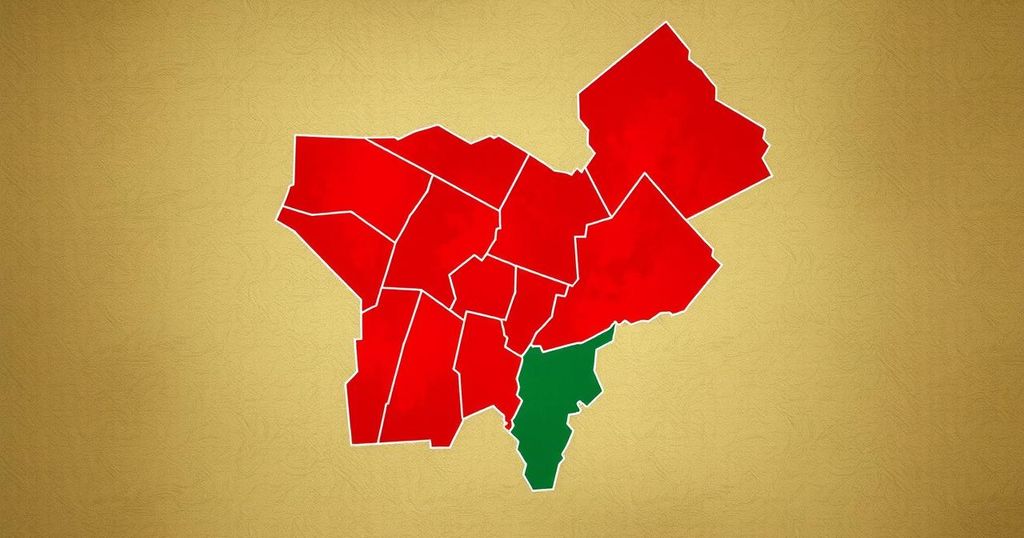Crisis in South Sudan: Urgency for Action Against Rising Violence

The security situation in South Sudan is worsening due to political tensions between SPLM and SPLM-IO, raising concerns of renewed civil war. Recent attacks by the White Army and aerial bombardments have caused civilian casualties and mass displacement. Political repression is evident, with key leaders facing arrests. The international community, led by the UN, urges immediate action to uphold the peace agreement and prevent further chaos.
The security situation in South Sudan is rapidly declining due to increasing tensions between the two principal political factions, the Sudan People’s Liberation Movement (SPLM), led by President Salva Kiir Mayardit, and the Sudan People’s Liberation Movement in Opposition (SPLM-IO), under First Vice President Riek Machar. This escalating conflict significantly jeopardizes the fragile peace established in the country, raising fears of a potential return to civil war.
On March 4th, the youth militia known as the White Army seized control of military barracks occupied by the South Sudan People’s Defense Forces (SSPDF). In response, the region experienced aerial bombardments on civilian areas, which have allegedly utilized incendiary devices. These brutal attacks have resulted in numerous fatalities, severe injuries, and the displacement of approximately 100,000 individuals.
Concerns regarding further escalation of violence in Upper Nile are amplified by reports indicating additional mobilization efforts from both the White Army and SSPDF, including possible child recruitment. Tensions materialized in the capital, Juba, on March 24, where clashes broke out between the SSPDF and SPLM-IO forces, creating widespread anxiety reminiscent of prior civil wars in 2013 and 2016. The United Nations has cautioned that the situation threatens the integrity of the 2018 Revitalized Peace Agreement.
In the political sphere, various SPLM-IO military and civilian leaders have faced dismissal, detention, or have gone into hiding, with reports suggesting that First Vice President Riek Machar has been placed under house arrest as of March 26. Nicholas Haysom, the head of the UN peacekeeping mission in South Sudan (UNMISS), expressed grave concerns about the deteriorating situation, emphasizing the necessity of adhering to the Revitalized Peace Agreement to break the cycle of conflict.
The UN is striving to engage in diplomatic initiatives alongside international and regional partners to avert a devastating war in South Sudan. Collaborative efforts involving UNMISS, the African Union, the Intergovernmental Authority on Development (IGAD), and the Reconstituted Joint Monitoring and Evaluation Commission aim to safeguard the significant progress achieved since the signing of the peace agreement, although success is contingent upon the willingness of involved parties to pursue peace.
UN Secretary General has urged the leaders of South Sudan to prioritize peace, articulating a clear and unwavering message: “Put down the weapons. Put all the people of South Sudan first.” This imperative underscores the urgent need for leadership intervention to avert further conflict and humanitarian crisis.
South Sudan attained independence from Sudan in 2011, marking the conclusion of a prolonged conflict. Nevertheless, peace was ephemeral, as political discord swiftly ignited a civil war, marked by widespread atrocities. The Revitalized Peace Agreement signed in 2018 initially offered optimism; however, its implementation has faced significant delays, aggravating the ongoing humanitarian crisis, which now affects over nine million individuals, approximately 75% of the population. The influx of 1.1 million returnees and refugees has further strained dwindling humanitarian resources.
The UN Mission in South Sudan (UNMISS) was established to foster peace and security, laying the groundwork for development. Presently, the mission is concentrated on preventing a resurgence of civil war, promoting self-reliance, and addressing crucial requirements for sustainable peace while supporting inclusive governance and facilitating fair elections.
In conclusion, the continuing turmoil in South Sudan poses a significant threat to national stability and regional security. The escalating violence, political repression, and humanitarian challenges necessitate immediate action by both national leaders and the international community. A united and robust commitment to the Revitalized Peace Agreement is essential to prevent a relapse into civil war and ensure the welfare of the South Sudanese population.
Original Source: peacekeeping.un.org








